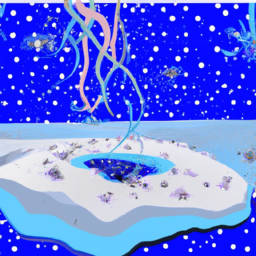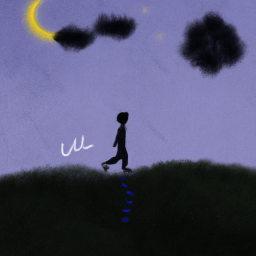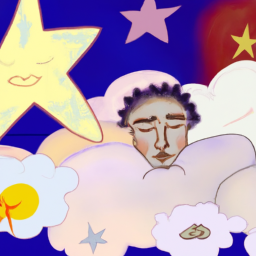Have you ever thought about the full meaning of dreams? I have done extensive research on this fascinating topic and am excited to share my findings with you.
Dreams are an integral part of human experience, yet we still have much to learn about them. In this article, we will explore the history and origin of dreams, the different theories and interpretations of them, as well as their physiological functions.
Dreams have been studied and recorded throughout human history. The ancient Egyptians believed that dreams were messages from deities or deceased loved ones. The Greeks interpreted dreams as omens sent by the gods. In modern times, Sigmund Freud’s psychoanalytic theory suggested that dreams were a window into the unconscious mind.
Despite these various interpretations, there is still much debate over what exactly dreams are and why they occur. By delving deeper into the scientific research on this topic, we can uncover more insights into this mysterious aspect of our lives.
Key Takeaways
- The word ‘dream’ has evolved over time and reflects changing perceptions of dreams.
- Dreams serve as a way for the brain to process emotions and memories, as well as potentially solve problems.
- Understanding the origins of words like ‘dream’ can help us better grasp their significance in our lives today.
- Language plays a role in shaping our understanding of dreams and their interpretations.
History and Origin of the Word ‘Dream’
As I delve into the history and origin of the word ‘dream’, I’m fascinated by its etymology and roots.
The word ‘dream’ originates from Old English ‘drÄ“am’, which means joy, mirth, or music.
Its Proto-Germanic root is *draugmaz, which means deception or illusion.
Understanding the linguistic evolution of this word sheds light on our perception of dreams as both joyful experiences and deceptive illusions.
Etymology of the Word
You might be curious to know that Dream’s full name isn’t just a random combination of letters, but rather it has an interesting etymology behind it.
The word ‘dream’ has its origin in the Old English language where it was spelled as ‘draum’. Linguistic evolution over time led to the modern spelling of the word as ‘dream’, which is currently used worldwide.
The root of the word can be traced back to Proto-Germanic roots where ‘draugmaz’ meant deception, illusion, or apparition. It’s believed that this meaning evolved through Middle English into a more positive connotation – signifying hope and aspiration.
Today, dreams are seen as an integral part of human experience and have been studied extensively by psychologists and neuroscientists alike. Understanding their etymology helps us appreciate their significance in our lives and how they’ve influenced human behavior throughout history.
Old English and Proto-Germanic Roots
The Old English and Proto-Germanic roots of the word ‘dream’ can be likened to a caterpillar’s transformation into a butterfly. The linguistic evolution of this word has been significant, as it has changed from its original negative connotation to a more positive one over time.
Here are three key points to help you understand how this transformation occurred:
- In Old English, ‘dream’ was associated with deception or illusion.
- The Proto-Germanic root ‘draugmaz’ referred to apparitions or phantoms.
- Over time, the meaning shifted towards more positive associations such as aspiration, hope, and imagination.
This linguistic evolution reflects humanity’s changing perception of dreams as something mysterious and potentially dangerous in the past, evolving into something that is now seen as an essential element for creativity and self-discovery in modern times.
As we explore different theories and interpretations of dreams, it’s important to keep in mind how language shapes our understanding of them. One theory may have been influenced by the negative connotations attached to ‘dreams’ during earlier periods while another might reflect current viewpoints that see dreaming as an integral part of human experience. Ultimately, we’ll find that understanding the origins of words like ‘dream’ can help us better grasp their significance in our lives today.
Different Theories and Interpretations of Dreams
Hey, let’s talk about the various theories and interpretations of dreams and how they can provide insight into our subconscious minds! There are many different schools of thought when it comes to understanding the meaning behind our nightly visions.
One popular theory is Freud’s psychoanalytic approach, which suggests that dreams are a manifestation of repressed desires and emotions. According to this theory, dreams serve as a way for the unconscious mind to communicate with the conscious mind, allowing us to process unresolved conflicts or unfulfilled wishes.
Another interpretation of dreams comes from Carl Jung, who believed that dreams express archetypes or universal symbols that reflect our collective unconscious. Jungian interpretation suggests that every dream has a personal meaning unique to each individual but also contains symbolic elements shared by all humans. Dreams can therefore reveal deep truths about ourselves and the world around us through their symbolic language.
Understanding these different theories and interpretations can help us gain valuable insights into our subconscious minds. But did you know that dreams also serve important physiological functions?
Let’s explore this further in the next section.
Physiological Functions of Dreams
Exploring the physiological functions of dreaming can provide a better understanding of how our subconscious mind and body work together during sleep. From a neurological perspective, dreams serve as a way for the brain to process emotions and memories that weren’t fully processed during waking hours. This is why dreams often feature familiar people, places, or experiences from our past.
Additionally, psychologists suggest that dreams may also serve as a form of problem-solving. During sleep, our brains are able to work through complex issues without distractions from the outside world. Therefore, it’s possible that the obscure and abstract scenarios presented in our dreams may offer solutions or new perspectives on real-life problems we face day-to-day.
Understanding these functions offers valuable insight into the importance of interpreting and analyzing one’s own dream content for personal growth and development.
As we delve deeper into the interpretation of dreams, common themes and symbols begin to emerge, offering further insight into our subconscious minds.
Common Themes and Symbols in Dreams
I find the common themes and symbols present in dreams to be fascinating. Among the most recurring ones are flying, falling, teeth, and nakedness. These elements often carry a deep psychological meaning that reveals much about our inner selves and desires.
As we delve into this subtopic, we’ll explore the scientific explanations behind these dream motifs and what they reveal about our psyche.
Flying
You’ll feel weightless as you soar through the sky in your dreams. Flying is one of the most common and exhilarating experiences that can happen during sleep. It’s no wonder why so many people report having this dream theme.
In fact, studies show that nearly 20% of all dreams involve some form of flying. But what does it mean when we fly in our dreams? Dream symbolism suggests that flying is often associated with freedom, liberation, and independence.
Here are a few other things to keep in mind when experiencing flight in your dreams:
- The type of flight (gliding, soaring, flapping wings) may indicate different levels of control or confidence.
- The environment you’re flying in may reflect your emotional state or current life situation.
- Pay attention to any obstacles or challenges encountered while flying – they may represent real-life hurdles you need to overcome.
- Consider how others around you are reacting to your ability to fly – this could offer insights into relationships or social dynamics.
- Finally, take note of any feelings or sensations experienced while flying – these may reveal subconscious desires or fears.
As thrilling as it can be to fly through the air in our dreams, there’s always the possibility of falling back down to reality. But before we explore that topic further…
Falling
Falling feels frighteningly fast and furious, but it’s a frequent feature of our slumbering subconscious. Dream analysis suggests that falling dreams often indicate a sense of insecurity or anxiety in waking life. Interestingly, though, the sensation may feel terrifying, we almost always wake up before hitting the ground.
In terms of brain activity, falling dreams are associated with increased activation in the amygdala, which is responsible for processing fear and emotional responses. However, research also suggests that these dreams can be used as an opportunity for personal growth by confronting and overcoming fears.
Moving forward into the next topic about teeth, it’s important to note that dental health plays a crucial role in both physical and mental well-being.
Teeth
When you neglect your teeth, it can lead to not only physical pain but also emotional distress as it affects your confidence and self-esteem. In dreams, teeth symbolism can represent a variety of meanings depending on the context of the dream.
Dream analysis techniques suggest that dreaming about losing one’s teeth may symbolize feelings of powerlessness or fear of aging. On the other hand, dreaming about strong and healthy teeth may represent a sense of personal power and vitality.
It’s important to note that dream interpretation is subjective and can vary based on an individual’s unique experiences and beliefs. However, paying attention to recurring dental themes in dreams may provide insight into one’s subconscious thoughts and emotions related to personal power, self-esteem, and aging.
As we move into discussing the next topic of nakedness, it’s interesting to consider how our attitudes towards our physical appearance are intertwined with these deeper psychological concepts.
Nakedness
Feeling exposed and vulnerable, being naked in front of a crowd can feel like the world is closing in on you. It is a common fear that many people share, stemming from societal norms and expectations about what is considered acceptable or attractive. However, body positivity movements have been gaining traction in recent years, encouraging individuals to love and accept their bodies regardless of shape, size, or appearance.
Body positivity promotes self-confidence and acceptance, allowing individuals to shed their insecurities and embrace their natural selves. This movement challenges the notion that nudity should only be reserved for certain body types or situations. By breaking down these barriers and embracing our bodies as they are, we can find liberation from societal pressures and learn to appreciate ourselves fully. With this new perspective, we can approach nudity with confidence and ease – whether alone or in a crowd.
Moving on to the next section about ‘lucid dreaming’, it’s important to note that our minds can be just as vulnerable as our bodies when left unchecked.
Lucid Dreaming
You can train yourself to become aware of your dreams and control them through lucid dreaming. Lucid dreaming is a technique that allows you to realize that you’re dreaming while you’re still in the dream state. Once you become aware that you’re in a dream, you can take control of it and explore your own subconscious mind.
Lucid dreaming has many benefits, including improving problem-solving skills, reducing anxiety, and enhancing creativity. To start lucid dreaming, there are several techniques you can use, such as keeping a dream journal to record your dreams every morning or performing reality checks throughout the day to test whether or not you’re awake.
With practice, anyone can learn how to lucid dream and gain insight into their own subconscious mind. However, sometimes nightmares and sleep disorders can interfere with our ability to have restful sleep.
Nightmares and Sleep Disorders
If you’re haunted by nightmares or plagued with sleep disorders, your restful slumber may feel like a distant memory. Nightmares can be caused by a variety of factors such as stress, anxiety, trauma, medication side effects, and even certain foods.
However, there are conditions that lead to more severe disturbances in sleep patterns, such as night terrors and sleepwalking. Night terrors are episodes of intense fear that occur during deep non-REM (rapid eye movement) sleep and can cause the person to scream, thrash around or even get up and run out of bed in panic. Sleepwalking is another sleep disorder where the affected person engages in complex activities while still asleep.
Both these conditions require medical attention for proper diagnosis and treatment. There are various methods to manage them, including cognitive-behavioral therapy, medications, and relaxation techniques, among others. Understanding the causes of night terrors and treating them appropriately can help greatly improve the quality of life for those affected by this condition.
As we delve deeper into exploring dreams beyond their scientific interpretation, it becomes apparent how they hold cultural and spiritual significance across different cultures throughout history.
Cultural and Spiritual Significance of Dreams
Exploring the cultural and spiritual significance of dreams reveals how they’ve been revered and studied in various societies throughout history. Spiritual practices such as meditation, prayer, and ritualistic ceremonies have been used to induce lucid dreaming. This ability allows one to be aware that they’re dreaming while still asleep.
Many cultures believe that dreams provide insight into one’s spiritual path. They can even offer guidance from ancestors or higher powers. Dream interpretation techniques have also played a significant role in many cultures. In ancient Greece, dreams were believed to offer messages from the gods. Dream interpreters would analyze dream symbols and use them to make predictions about the future or give advice on important life decisions.
Similarly, Native American tribes have long used dreamcatchers as a tool for filtering out negative dreams. They allow positive ones to pass through. These cultural beliefs and practices demonstrate the importance of dreams as a means of accessing both personal and universal wisdom.
As our understanding of the brain continues to evolve, so does our exploration of the nature of dreams. While we have made strides in identifying specific regions of the brain involved in dreaming, much remains unknown about why we dream at all. The next section will delve further into current research on this topic and what it may mean for our understanding of consciousness.
The Future of Dream Research
Get ready to be amazed by what’s in store for the future of dream research! As neuroscience advancements continue, we can expect a deeper understanding of how dreams are formed and processed in the brain. This will allow researchers to explore the connection between dreaming and various mental health conditions such as anxiety, depression, and post-traumatic stress disorder (PTSD). With new technologies emerging for monitoring brain activity during sleep, there is also potential for more precise interpretations of dreams.
One trend that has emerged in recent years is the use of artificial intelligence (AI) to interpret dreams. With vast amounts of data being collected on people’s dreams through apps and wearable devices, AI algorithms are being developed to analyze this information and provide insights into their meanings. This could revolutionize the field of dream interpretation by providing objective analysis that takes into account individual differences in culture, personality traits, and life experiences. Overall, it’s an exciting time for dream research as we uncover new insights about this mysterious aspect of our minds.
Frequently Asked Questions
Can dreams predict the future?
As a dream interpreter, I can confidently say that while dreams may provide insight into our subconscious desires and emotions, they cannot predict the future. Dream interpretation is a fascinating field, but it is not a reliable method for future prediction.
What is the difference between dreams and daydreams?
Daydreaming involves visualization of pleasant scenarios, whereas dreams occur during sleep. Lucid dreaming techniques can induce control over dream content, leading to potential benefits such as improved creativity and problem-solving skills.
Do animals dream?
Just like humans, animals have sleep patterns that include REM (rapid eye movement) sleep, a stage associated with dreaming. While we can’t ask them about their dreams, it’s safe to assume that they do indeed dream.
Why do some people remember their dreams better than others?
Dream recall techniques and sleep disorders affecting dream memory can explain why some people remember their dreams better than others. Factors such as alcohol consumption, stress, and medications may also play a role. As a scientist, I find this topic fascinating and hope to discover more about it in the future.
Can dreams be controlled or manipulated?
I have found that lucid dreaming techniques, such as reality checks and visualization exercises, can increase the ability to control and manipulate dreams. Keeping a dream journal can also enhance dream recall and aid in becoming aware of dreaming while asleep.
Conclusion
In conclusion, the study of dreams is an ever-evolving field that continues to fascinate and intrigue researchers and individuals alike. While the history and origin of the word ‘dream’ may be uncertain, there are numerous theories surrounding their purpose and significance.
From physiological functions to common themes and symbols, dreams offer insight into our subconscious mind. One example of a significant dream experience is that of a patient who suffered from chronic nightmares related to trauma. Through therapy and the use of lucid dreaming techniques, this individual was able to confront their fears in a safe environment and ultimately overcome their nightmares. This case illustrates the potential power of dreams as a tool for healing and personal growth.
As technology advances and research methods improve, it is likely that we will continue to gain a deeper understanding of the complexities surrounding dreams. Whether viewed through cultural or scientific lenses, one thing remains clear – our dreams hold immense value in helping us better understand ourselves and navigate our waking lives with greater awareness.










